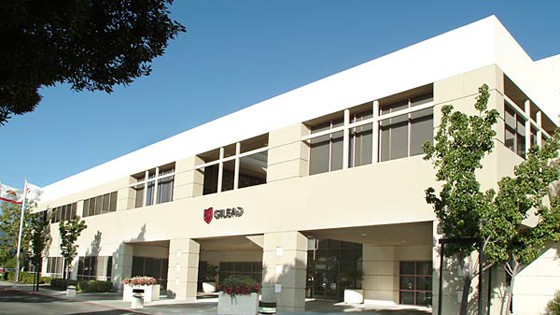
Gilead Sciences is on track to make big inroads into the hepatitis C virus market after a Food and Drug Administration (FDA) advisory committee voted unanimously in favour of its sofosbuvir candidate.
Sofosbuvir looks set to gain the distinction of becoming the first hepatitis C drug to secure approval as part of an interferon-free regimen, after the panel agreed that it was effective alongside ribavirin for patients with genotypes 2 and 3 hepatitis C, two relatively uncommon forms of the infection.
Panellists also backed sofosbuvir’s use in combination with ribavirin and pegylated interferon alfa as a treatment for the more prevalent genotype 1 form of hepatitis C, which accounts for around 70 per cent of all cases in the US, as well as patients with genotype 4.
Sofosbuvir is the first compound in the NS5B polymerase inhibitor class to reach this stage of development in the US, and looks set to become a major new treatment for hepatitis C if the FDA follows its committee’s advice and approves the drug. The agency is due to deliver its verdict by December 8.
The panel reviewed four clinical trials which all showed that sofosbuvir-based regimens achieved sustained virologic responses (SVRs) in as little as 12 weeks, and were either superior or non-inferior to currently-available treatments.
Gilead is asking for approval for sofosbuvir regimens involving 12 to 16 weeks of therapy, which compares favourably to the 48 weeks required for interferon.
The company is also conducting two studies (ION-1 and ION-2) of an all-oral regimen for genotype 1 hepatitis C based on ribavirin and a fixed-dose combination of sofosbuvir and ledipasvir, an NS5A inhibitor, that should generate results next year. The studies are looking at treatment durations between 12 and 24 weeks.
In addition to the US application, Gilead has filed for approval of sofosbuvir in the EU, Switzerland, Canada and Australia/New Zealand.
In the EU, the drug received a recommendation today under the European Medicines Agency’s compassionate use programme, which is intended to give patients with a life-threatening, long-lasting or seriously disabling disease who have no available treatment options access to treatments that are still under development.
About 4 million Americans have hepatitis C, according to the US National Institutes of Health (NIH), and Gilead’s president John Milligan said recently that around 1 million patients have been diagnosed and around 350,000 are receiving some form of treatment.
Many patients do not seek treatment at the moment because of the side effects associated with the current standard regimen of pegylated interferon, ribavirin and a protease inhibitor, which at the moment means either Vertex Pharmaceuticals’ Incivek (telaprevir) or Merck & Co’s Victrelis (bocepravir).
The day before the sofosbuvir panel meeting the same committee voted in favour of approval for Johnson & Johnson and Medivir’s protease inhibitor simeprevir, which is already registered in Japan as Sovriad.
If sofosbuvir fulfils its potential and becomes the cornerstone of all-oral HCV therapy, analysts have predicted that it could become a mega blockbuster with sales of $2bn next year and $5bn or more at peak, which would go a long way to expand Gilead from its current focus on HIV medications.
Some analysts have suggested the hepatitis C market could end up being a relatively short-lived bonanza for Gilead and rivals such as AbbVie, Boehringer Ingelheim and Bristol-Myers Squibb as the tolerability and efficacy of the new oral regimens boost cure rates and – over time – demand slackens off.




